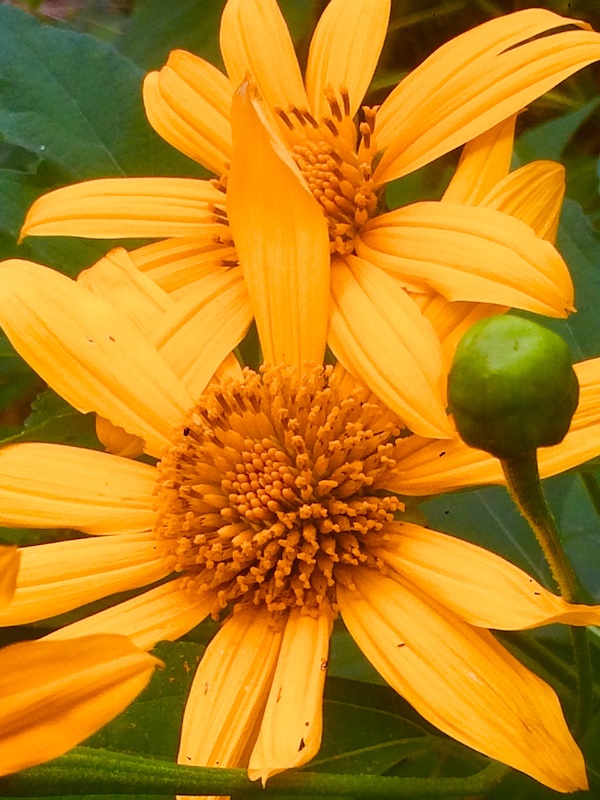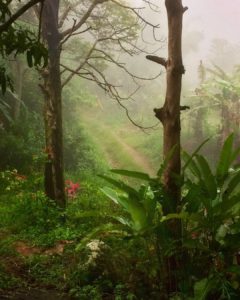
It’s a cool and very wet fall morning here in Tapuio. Heavy rains began falling yesterday afternoon and haven’t let up since. It’s 68ºF, foggy, green and white with spots of brilliant orange from fall daisies and mangoes.
The rain is certainly welcome. We haven’t had much in the last few weeks and the ground had gone dry. My fall garden was starting to look, well, unhappy.
People say Tapuio is paradise. And indeed, when the fog rolls in, the air thick with wet smells of leaves and fruit and flowers, it is paradise.
But there are many problems here as well. Almost all of them related to human activity.
Motorcyclists, sometimes in groups of up to 20+, roar through here destroying both the tranquility and the road. They shout and laugh over the roar of their engines, indifferent to the destruction they are causing. Their pleasure is more important. If you confront them, as I have done, they laugh at you, or they tell you to go complain to the municipal government, or they get angry and attack you. I have been attacked by them.
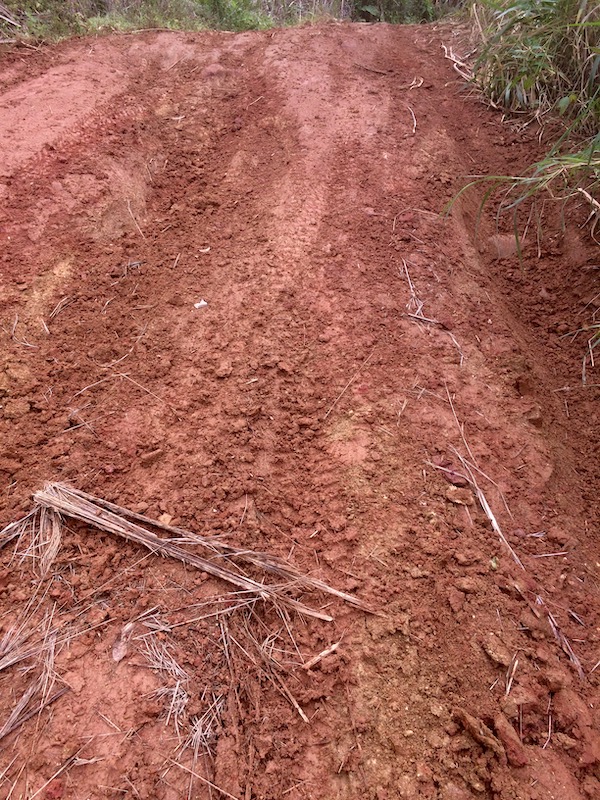
Motocross track? 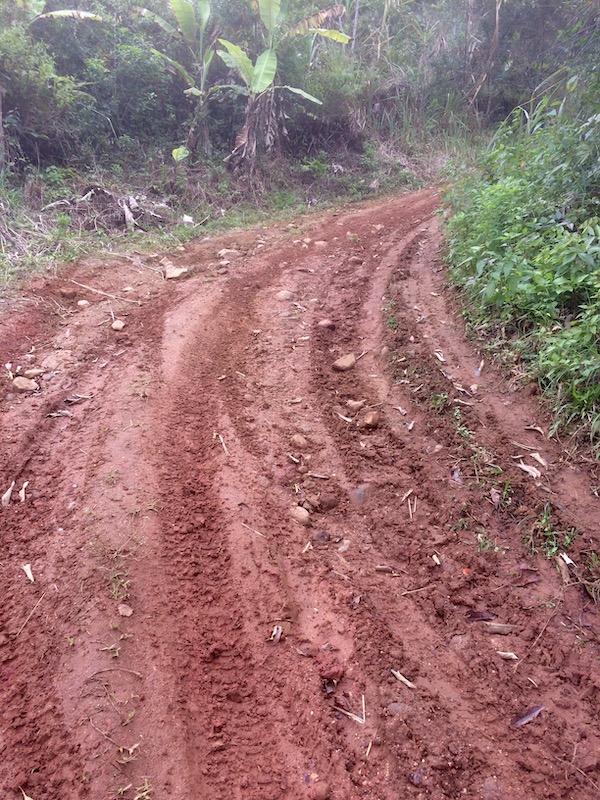
No. 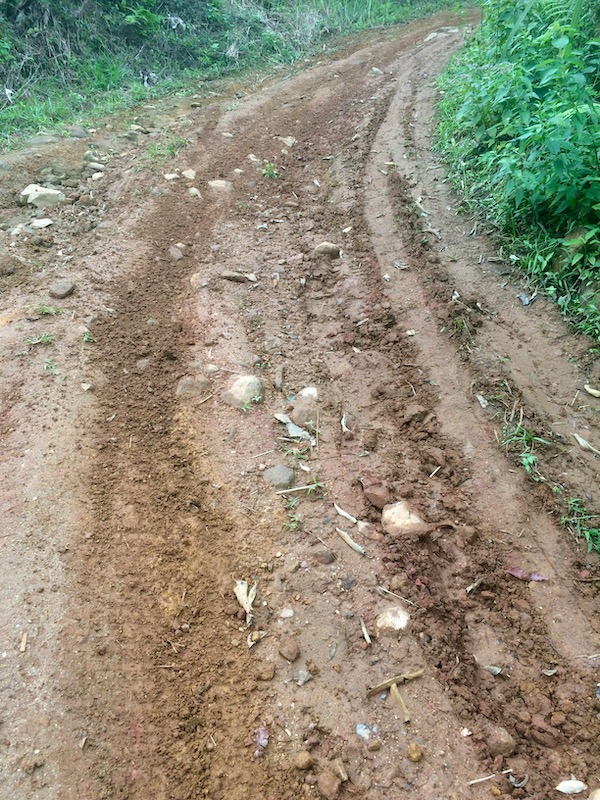
The road after a few motorcyclists blaze by
Hunters, sometimes from as far away as neighboring states, prey on the wildlife, shooting pretty much anything that moves: armadillos, monkeys, giant lizards, boas, paca, opossums, the list goes on and on. Some of it they eat, some of it they sell, some of it they kill for the pleasure of killing.
During nesting season, bird hunters fill the higher parts of Tapuio, taking eggs and hatchlings to sell to collectors. They use the money to buy silver chains, extra beer for parties, cell phones, etc.
Plant collectors scour the area for orchids (now exceedingly rare here) and other plants, carrying them off to sell to collectors in the lower areas where the highland plants languish and ultimately die. I’ve had orchids around my home ripped out of the trees, some irreplaceable. Cattleyas, once common, are now pretty much gone.
Eucalyptus has been planted over a wide swath of Tapuio, replacing native flora, creating green deserts. It has now gone wild, spreading by seed. It was originally planted as a cheap fast easy way to earn additional money. Occasionally someone will chop a couple trees down to use in construction. It didn’t live up to its economic promise and has been abandoned, an expanding green desert.
Agriculture in Tapuio is far from innovative or eco-friendly. Pesticides and herbicides soak almost every square inch of this mountainous highland, poisoning the soil and ultimately the water. Beneficial soil bacteria, beneficial insects, beneficial flora which helps condition soil, are all killed off, requiring increased use of chemical fertilizers and soil conditioners, acidifying the soil (a soil analysis showed the pH around my property to be 4.9). Because this cycle is ultimately degenerative, plants fail, production falls, and people turn to pasture and cattle.
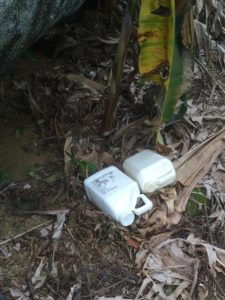
The creation of pasture for cattle is one of the most destructive of all activities in Tapuio. The creation of pasture results (obviously) in deforestation. Cows don’t eat forest leaves. This results in soil erosion, a decrease in soil fertility, decreased nutrition for the cattle, decreased humidity, drying out, a decrease in the water table, etc etc etc. Cattle have no place in Tapuio.
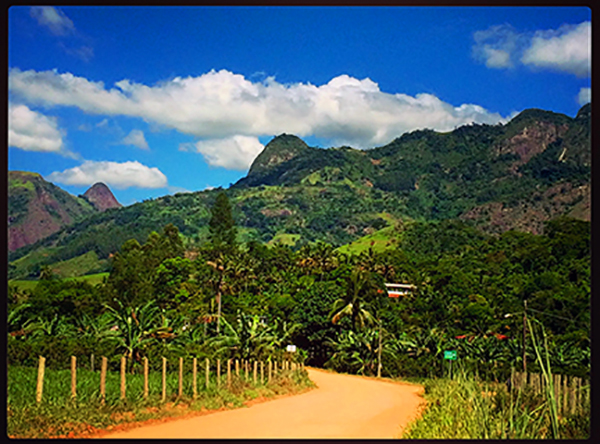
There’s talk of making a park out of Tapuio. But those who talk are those who have an eye on some kind of business venture, mostly in the form of restaurants and bars. The area is already fragile. Any such venture would be the nail in Tapuio’s coffin.
Some want to dot the land with summer rentals, filling the land with off road vehicles, loud music and engines, dogs, and barbecue pits. It’d be a great income for the landowners, but would completely destroy whatever is left of the natural beauty of this area.
The other day I was talking to the neighboring landowner. He doesn’t live here (indeed, none of the landowners live here) but he has coffee and bananas on his land and comes up almost every weekday to work. (I think it is important to note that agriculture as practiced in this region was primarily subsistence agriculture, rice and beans and vegetables, with some coffee, until about 20 years ago when someone decided to try bananas. The area was perfect for their cultivation. Suddenly, everybody began planting them and now this region is the second largest producer of bananas in the country.) He is 5 years younger than me but looks like he’s 10 years older. A firm believer in better living through chemistry, he soaks his land with pesticides and herbicides. He is also always sick. He swears it’s the flu.
He and I have had our disagreements. But for the most part, we get along. That is, until recently. He is increasingly grumpy, increasingly antagonistic. I suspect, as he ages, he has begun to evaluate his “worth” and has found himself perhaps not measuring up. He told me he’s the reference for Tapuio, that when people talk about coming up here, people refer to the area as his place.
They don’t.
He told me he knows every rock, every tree, every bump in the road. His experiences are the ones that matter, his interpretations the only true ones.
He does know the area. But he doesn’t know what it is becoming. He lives in his past, frustrated because he is unable to peer into his future.
So he works, tries his hardest, to preserve the past he knows.
But Tapuio doesn’t care about his experiences, his past. The springs will continue to dry up no matter how much he swears they won’t. They are already drying up.
He’s not unique in his egocentricity. It’s pretty much the norm here. It’s pretty much the norm everywhere. People who lack a broader frame of reference think their way of thinking, based on generations of like minded thinking, is the “correct” way of thinking. There’s a name for this phenomenon. Insularity.
If the insularity of this region’s people developed into some kind of provincialism, local pride, I could perhaps find it easier to bear. But it doesn’t. It remains fiercely selfish.
People have a few sayings here which they repeat over and over ad nauseam.
Nunca fiz nada para te ajudar mas também nunca fiz nada para te impedir
I never did anything to help you but I also never did anything to impede you.
I hate this one, primarily because it isn’t true. People will often help, with the express purpose of making sure you know how they are the ones making your life better. Only they don’t really make your life better. And very often, while helping, they will do everything in their power to make sure your life becomes a chaotic nightmare. If at any point you refuse their help, it is because you are proud and need to learn humility. At that point, they become openly antagonistic and do everything in their power to destroy anything you do.
Cada cabeça é um mundo
Each head is a world.
If people actually had unique thoughts, the world would be both more chaotic and more dynamic. Alas, people all tend to think in similar ways. We are given “molds” in which to fit our experiences, then interpret our experiences in terms of these molds, thinking we are somehow understanding realities.
Cada um por si e Deus por todos
Each one for himself and God for all
This one I truly hate. As an atheist, I don’t believe in any god. In their eyes, this makes me a criminal-loving commie trying to turn the country into another Venezuela. But I believe this statement forgives their lack of interest or concern about the well-being of others. It allows them to believe they are successful (if they are) because it was the will of some god rewarding them for their efforts in what they believe to be a level playing field. If you are unsuccessful, it is because you haven’t tried hard enough to catch the attention of a beneficent and rewarding god. Success, of course, is determined by one’s bank account and appearance.
At the foundation of all of this is selfishness, either born of arrogance or insecurity. The desire to be known as the reference for a region or a movement or a belief.
I try hard to avoid that for Tapuio. This place is its own reference and those of us who love Tapuio bear it as reference, not subordinate it to our own sense of importance. I am no more a reference for Tapuio than is my neighboring landowner. I am unconcerned about whether you know my name.
I do want you to know the name Tapuio, to know about this spot of land undergoing the same changes as everywhere else, needless changes destroying the land, destroying the water, destroying the wildlife, destroying the possibility of a future. As much as the Arctic, as much as the Amazon, as much as the forests of Indonesia, Tapuio is a reference for the ways the earth is changing due to human activity.
I want to do what I can for this beautiful land that welcomed me when I had almost nothing, this land where ant eaters ramble about in front of my house, where coatis tumble out of the brush to walk alongside me, this land where a wild canine came down the road to sit next to me on one of the saddest days of my life.
It’s fall here, beautiful foggy cool fall dotted with the orange of mangoes and daisies.
Salve Tapuio.
